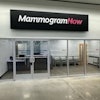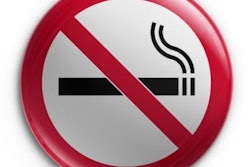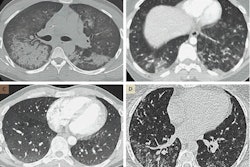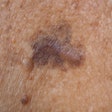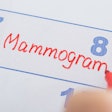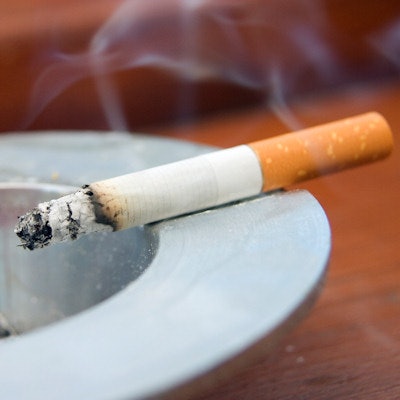
Individuals who smoke are much less likely than nonsmokers to participate in basic screening exams for breast, prostate, and colorectal cancer, despite clear recommendations from existing guidelines, according to a new study published online May 17 in JAMA Network Open.
"In addition to lung cancer, smoking has been linked to cancer risk at additional sites. ... [Thus,] individuals who smoke may potentially derive the greatest benefit from improved cancer screening to detect occult disease at an earlier stage," wrote a team led by Dr. Nina Sanford from the University of Texas Southwestern Medical Center.
To assess cancer screening patterns among smokers, Sanford and colleagues examined data from the National Health Interview Survey for survey years 2010, 2013, and 2015. Their analysis centered on participation rates in cancer screening via colonoscopy, mammography, prostate-specific antigen (PSA) testing, and Papanicolaou (Pap) testing following U.S. Preventive Services Task Force (USPSTF) guidelines.
Among 83,176 participants, 61.3% were nonsmokers (or never smokers), 20.7% were former smokers, and 17.9% were current smokers. The status of current smoker was designated for individuals who had smoked at least 100 cigarettes in their lifetime and continued to smoke; those who smoked less than that amount were considered nonsmokers.
Overall, current smokers were less likely than nonsmokers and former smokers to undergo colonoscopy, mammography, and PSA testing for cancer, even after adjusting for relevant demographic and socioeconomic factors. However, current smokers were more likely to take a Pap test than nonsmokers.
| Participation rates for cancer screening among nonsmokers vs. smokers | ||
| Screening exam | Nonsmokers | Current smokers |
| Colonoscopy | 57.7% | 43.8% |
| Mammogram | 93.3% | 88.8% |
| PSA test | 60.8% | 46.1% |
| Pap test | 91.4% | 95.9% |
Among individuals who had participated in at least one prior cancer screening exam, current smokers were less likely than nonsmokers to undergo colonoscopy (92.1% versus 95.1%; p = 0.02), mammography (62.4% versus 79.4%; p < 0.001), and a Pap test (80.9% versus 90.8%; p < 0.001).
Out of the 14,927 current smokers, 48% reported an attempt to quit smoking for at least a single day during the past year. Those who had tried smoking cessation were more likely to have undergone colonoscopy (47.6% versus 41%; p = .005) and mammography (92.6% versus 86.0%; p < .001), compared with those who had not.
Whereas current smokers were less likely to undergo screening for breast, prostate, and colorectal cancer than nonsmokers, former smokers were more likely to participate in age-appropriate screening exams.
Reasons for this trend may partly stem from the "predominantly pessimistic and avoidant beliefs about cancer" among current smokers, which may discourage them from undergoing screening, according to the researchers. Also at play may be the potential association between heavy smoking and other health-adverse lifestyle choices, such as greater alcohol use and decreased exercise, which could indicate "personal biases regarding health status," the researchers explained. Conversely, former smokers (and to a lesser extent, current smokers who have tried to quit) may feel particularly motivated to take part in initiatives like screening to optimize their health.
The lower rate of cancer screening among current smokers despite their increased cancer risk is a concerning paradox with several major public health implications, the authors noted.
"Our findings suggest physicians need to be aware of this disparity, which may affect a group of individuals with a baseline higher risk for several cancer types," they wrote. "We recommend a concerted effort from the medical community to identify barriers to screening among smokers to implement strategies to increase acceptance and uptake of cancer screening within this population."
